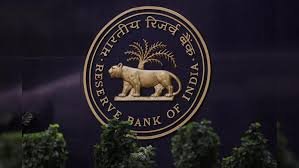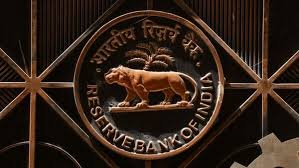RBI Imposes Penalties on UCO Bank and Cent Bank Home Finance Ltd
RBI’s Recent Action: Overview
In a significant regulatory move, the Reserve Bank of India (RBI) has imposed financial penalties on UCO Bank and Cent Bank Home Finance Ltd. This decision underscores the RBI’s commitment to ensuring adherence to regulatory standards and maintaining the integrity of the financial system. UCO Bank, a major public sector bank, and Cent Bank Home Finance Ltd, a notable housing finance company, have both faced penalties for non-compliance with various regulatory norms.
Details of the Penalties
The RBI has levied a fine of ₹1 crore on UCO Bank for deficiencies in its regulatory compliance. Specifically, the bank has been penalized for failing to adhere to the guidelines regarding the implementation of the Know Your Customer (KYC) norms and Anti-Money Laundering (AML) standards. On the other hand, Cent Bank Home Finance Ltd has been fined ₹25 lakh for lapses in its adherence to regulatory requirements related to loan sanctioning and monitoring practices.
Impact on UCO Bank and Cent Bank Home Finance Ltd
The penalties reflect the RBI’s ongoing efforts to enforce rigorous compliance standards across the banking and finance sectors. For UCO Bank, the fine is a reminder of the critical importance of maintaining strict adherence to KYC and AML procedures. Cent Bank Home Finance Ltd’s penalty highlights the need for robust practices in loan management and regulatory adherence to safeguard consumer interests and maintain financial stability.
Future Implications
These penalties serve as a cautionary tale for other financial institutions. They emphasize the necessity of adhering to regulatory guidelines to avoid similar consequences. For UCO Bank and Cent Bank Home Finance Ltd, addressing these compliance issues will be essential in restoring their operational integrity and maintaining their reputations in the financial market.

Why This News is Important
Strengthening Regulatory Compliance
The imposition of penalties by the RBI on UCO Bank and Cent Bank Home Finance Ltd underscores the importance of regulatory compliance in the financial sector. It highlights the RBI’s role in enforcing standards that protect both consumers and the broader financial system. For students preparing for government exams, understanding these regulatory actions is crucial as they reflect the mechanisms in place to ensure financial stability and integrity.
Reinforcement of KYC and AML Norms
The fine imposed on UCO Bank for lapses in KYC and AML norms illustrates the RBI’s focus on these critical areas. KYC and AML procedures are fundamental to preventing financial crimes such as money laundering and fraud. Knowledge of these regulations and their enforcement can be pivotal for roles in banking, finance, and regulatory agencies.
Implications for Financial Institutions
The penalties also serve as a reminder to other financial institutions about the importance of adhering to regulatory guidelines. They highlight the potential consequences of non-compliance, which can include financial penalties and reputational damage. This is a key area of focus for students aiming to work in the financial sector or regulatory bodies.
Educational Value for Government Exams
For candidates preparing for government exams, this news provides insight into the regulatory landscape of the financial sector. It helps in understanding how regulatory bodies like the RBI operate and enforce standards, which is relevant for exams that cover financial regulations, banking practices, and administrative roles.
Historical Context: Background of RBI’s Regulatory Actions
Evolution of RBI’s Regulatory Framework
The Reserve Bank of India (RBI) has a long history of regulating the Indian banking sector, with its primary objectives including ensuring financial stability and protecting consumer interests. Over the years, the RBI has implemented various regulations and compliance measures to address emerging challenges in the financial system. The introduction of KYC and AML norms is part of a broader effort to combat financial crimes and ensure transparency in banking operations.
Previous Penalties and Regulatory Actions
The RBI has previously imposed penalties on financial institutions for non-compliance with regulatory guidelines. These actions are part of the RBI’s broader mandate to enforce standards and ensure that banks and financial companies adhere to best practices. Past instances have shown that the RBI’s regulatory framework evolves in response to emerging challenges and industry practices, reinforcing the need for continuous compliance.
Key Takeaways from RBI Imposes Penalties on UCO Bank and Cent Bank Home Finance Ltd
| Serial Number | Key Takeaway |
|---|---|
| 1 | The RBI imposed a ₹1 crore fine on UCO Bank for KYC and AML non-compliance. |
| 2 | Cent Bank Home Finance Ltd was fined ₹25 lakh for lapses in loan management and regulatory adherence. |
| 3 | The penalties highlight the importance of strict adherence to regulatory norms in the financial sector. |
| 4 | These actions serve as a reminder to other institutions about the potential consequences of non-compliance. |
| 5 | Understanding regulatory enforcement by the RBI is crucial for roles in banking, finance, and regulatory agencies. |
Important FAQs for Students from this News
1. What penalties have been imposed on UCO Bank and Cent Bank Home Finance Ltd by the RBI?
The RBI has imposed a fine of ₹1 crore on UCO Bank for deficiencies in adhering to KYC and AML norms. Cent Bank Home Finance Ltd has been fined ₹25 lakh for lapses in loan sanctioning and monitoring practices.
2. Why did the RBI fine UCO Bank?
UCO Bank was fined due to non-compliance with Know Your Customer (KYC) and Anti-Money Laundering (AML) guidelines. These guidelines are essential for preventing financial crimes and ensuring the integrity of financial transactions.
3. What is the significance of the penalties imposed by the RBI?
The penalties highlight the RBI’s commitment to enforcing regulatory standards and maintaining financial stability. They serve as a reminder to other financial institutions about the importance of strict adherence to regulatory norms to avoid similar consequences.
4. How do these penalties impact UCO Bank and Cent Bank Home Finance Ltd?
The fines impact the financial standing and reputation of the institutions. For UCO Bank, it underscores the need for enhanced KYC and AML practices. For Cent Bank Home Finance Ltd, the penalty emphasizes the importance of robust loan management and regulatory compliance.
5. How can understanding these regulatory actions benefit students preparing for government exams?
Knowledge of regulatory actions by bodies like the RBI provides insight into the enforcement mechanisms within the financial sector. This understanding is valuable for exams related to banking, finance, and administrative roles where regulatory compliance is a key topic.
Some Important Current Affairs Links













